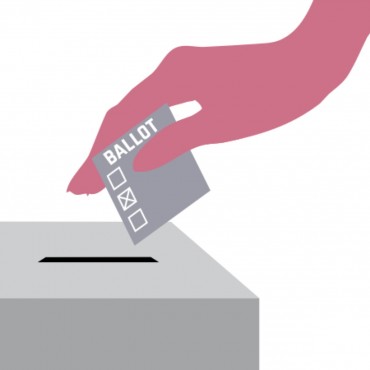Why B.C. youth should choose if they want the vote or not

File Graphic by Mary Robertson
When one Martlet contributor was in high school, her school ran a mock election in the fall of 2015 during the federal election, inviting all the local party candidates to the school to have a panel discussion with the students. The platforms of each member were discussed and posters were displayed around the school, followed by a vote on election day among the students in school.
Surprisingly, the school’s results almost perfectly matched that of the local communities. Only a handful of ballots were spoiled, and the turnout was high (most likely due to voting being an excuse to leave class).
As a 17-year-old at the time of the election, the Martlet contributor found the mock election key in her decision to vote in the future. It got her excited about politics and she found herself getting much more involved in the political scene.
Soon, more adolescents may get the chance to experience the real thing. Even some politicians hope so.
“I believe, and a growing number of nations across the world believe, that it’s important to engage youth in our democracy precisely at a time when they are learning about it in schools,” says B.C. Green Party leader Andrew Weaver.
On Mar. 13, Weaver introduced a bill to the provincial legislature in favour of lowering the voting age to 16 in B.C. This decision would follow in the footsteps of European countries such as Austria and Scotland, whom Weaver cited as examples to look at to increase voter turnout in our own province.
Even in Canada, 16-year-olds have proven that they are willing to be engaged and fight to engage in our democracy.
In 2015, a New Brunswick youth group called The Fédération des jeunes francophones du Nouveau-Brunswick (Federation of Young Francophones of New Brunswick) threw their support behind a bill that would drop the voting age from 18 to 16 in New Brunswick. The bill, proposed by New Brunswick Green Party leader David Coon, made it through the second reading in the legislature but was not forwarded to the debating stage.
Out of fear that the bill would stall, the young collective released a YouTube video that outlined the benefits of having 16-year-olds vote, which started the tagline #Vote16.
In the end, despite the New Brunswick Liberals deciding to keep the voting age at 18 for their 2018 provincial election, the Federation of Young Francophones were successful in persuading their government to promise a 2020 referendum asking the public about lowering the voting age to 16.
New Brunswick teens successfully fought for this change, and we think that B.C.’s youth would do the same. So why can’t the B.C. government ask them if they want to vote?
This is all we’re asking. Give 16-year-olds a say in democracy, and don’t let the baby boomer generation speak on behalf of them.
There is an irony inherent in older columnists and politicians offering their opinions about lowering the voting age, and it’s not one that is going to be rectified without going directly to 16-year-olds and asking them what they want.
In the Martlet’s opinion, there is no better way to gauge whether or not 16-to-18-year-olds want the chance to vote in provincial elections than by holding a referendum just for them. Binding or not, such a referendum could solve Weaver’s problem of the youth not having the vote and appease critics who might say that teenagers either can’t handle the vote or don’t want it.
If the majority of teenagers vote in favour, then great. If not, then at least they’ve had their say. Whichever the result, we’ll have stopped pretending that 16-year-olds can’t make their own decisions.
Thanks for reading! If you enjoyed this article and would like to make sure we keep writing articles like it, please consider supporting us on the Martlet 70 fundraiser’s GoFundMe page.
If you hated the article, though, you should still donate to the GoFundMe page (so we can hire better writers).







